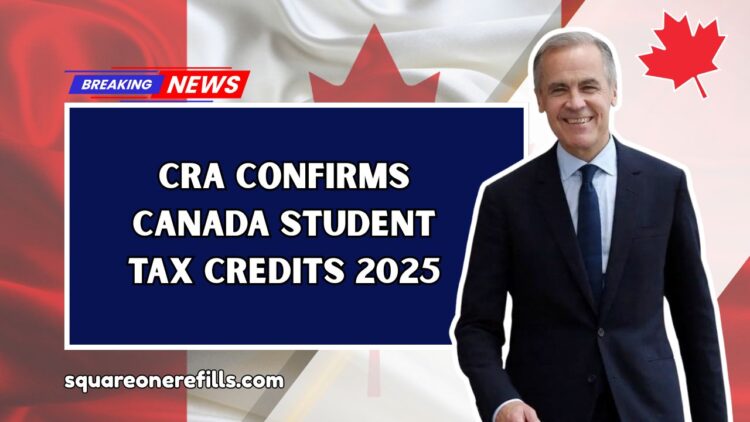Studying in Canada is a big dream for many, but the cost of tuition fees, student loans, and moving for education can be a heavy burden. The good news is that the Canada Revenue Agency (CRA) provides several student tax credits and deductions to help reduce these costs.
For the 2025 tax year, students, recent graduates, and even adults upgrading their skills can benefit from these programs.
This article explains all the main tax credits available in 2025, who can claim them, and how to make the most of these opportunities.
Tuition Tax Credit – The Main Student Benefit
The Tuition Tax Credit is the most common benefit for Canadian students. It is non-refundable, meaning it reduces the amount of tax you owe but does not give you extra cash if you owe nothing.
Eligibility Rules:
- Must be enrolled in a post-secondary institution in Canada or an approved international school.
- Tuition fees must be more than $100 per year.
- You must receive an official T2202 form from your school.
Costs Covered:
- Tuition fees
- Mandatory exam fees
- Admission and registration charges
- Lab and library fees
Example: If you paid $4,000 in tuition in 2025, you can claim 15% ($600) as a federal credit.
Extra Benefits:
- Carry forward unused tuition credits indefinitely.
- Transfer up to $5,000 of tuition credits to parents, grandparents, spouse, or common-law partner.
Canada Training Credit – For Skills Development
The Canada Training Credit (CTC) helps Canadians upgrade skills and training. This credit is refundable, meaning you can get money back even if you owe no taxes.
Eligibility:
- Must be 26–65 years old.
- Earned at least $10,000 in working income the previous year.
- Must not be in the top federal tax bracket.
How It Works:
- You accumulate $250 each year, up to a lifetime maximum of $5,000.
- Your available credit is listed on your Notice of Assessment.
Example: If you have $750 in CTC credits and spend that on training, you get the full $750 back in cash.
Student Loan Interest Deduction – Relief for Graduates
If you are repaying government student loans, you can claim a non-refundable credit for the interest paid.
Important Notes:
- Only federal and provincial student loans qualify (not bank loans or private lines of credit).
- You can only claim interest, not the principal loan.
- You can apply interest from the past 5 years if not previously claimed.
- Report interest on Line 31900 of your tax return.
- Unused interest credits can be carried forward for up to 5 years.
Moving Expense Deduction – For Students Relocating
If you moved to attend full-time post-secondary education or started a co-op work term, you may be eligible to deduct moving costs.
Eligibility Rule:
- Your new home must be at least 40 km closer to your school or workplace.
Eligible Expenses:
- Transportation costs (bus, flights, fuel).
- Temporary housing (up to 15 days).
- Meals while travelling.
- Moving truck rentals & storage fees.
To claim, complete Form T1-M and keep all receipts.
Basic Personal Amount – The 2025 Threshold
For 2025, the Basic Personal Amount is $15,000. If your income is below this amount, you will not pay federal income tax.
Why File a Tax Return Anyway?
- To claim GST/HST credits.
- To carry forward unused tuition credits.
- To access provincial benefits.
- Even with no income, filing ensures you don’t miss out.
Extra Student Benefits in 2025
GST/HST Credit
- Paid quarterly to low- and modest-income Canadians, including students.
- Filing a return is mandatory to receive it.
Provincial and Territorial Programs
| Province | Benefit Example |
|---|---|
| Ontario | Ontario Tuition Grant (via OSAP) |
| B.C. | BC Training & Education Savings Grant |
| Quebec | Deduction for tuition & education expenses |
How Students Can Save in 2025
By using all available credits, students can save hundreds or even thousands of dollars each year. Tuition credits reduce your tax bill, training credits put cash back in your pocket, interest deductions lower repayment costs, and moving expense deductions help cover relocation costs.
The cost of education in Canada can be high, but the 2025 student tax credits and deductions are powerful tools to reduce financial stress. Whether you are a current student, a recent graduate, or someone returning to school, you should always file a tax return to maximize your benefits.
By claiming tuition credits, training credits, loan interest deductions, and moving expense deductions, you can reduce costs and even get cash back.
Filing also opens access to GST/HST credits and provincial benefits, ensuring you get the full financial support available. Taking time to understand and claim these credits can make education more affordable and rewarding.
FAQs
Can I transfer my unused tuition credits?
Yes, you can transfer up to $5,000 of unused tuition credits to your parents, grandparents, spouse, or common-law partner.
Can I claim moving expenses if I move within the same city?
Only if the move makes your new home at least 40 km closer to your school or workplace.
Do private student loans qualify for interest deduction?
No, only government student loans (federal or provincial) are eligible for this tax credit.

